News
YEAR OF NEWS :

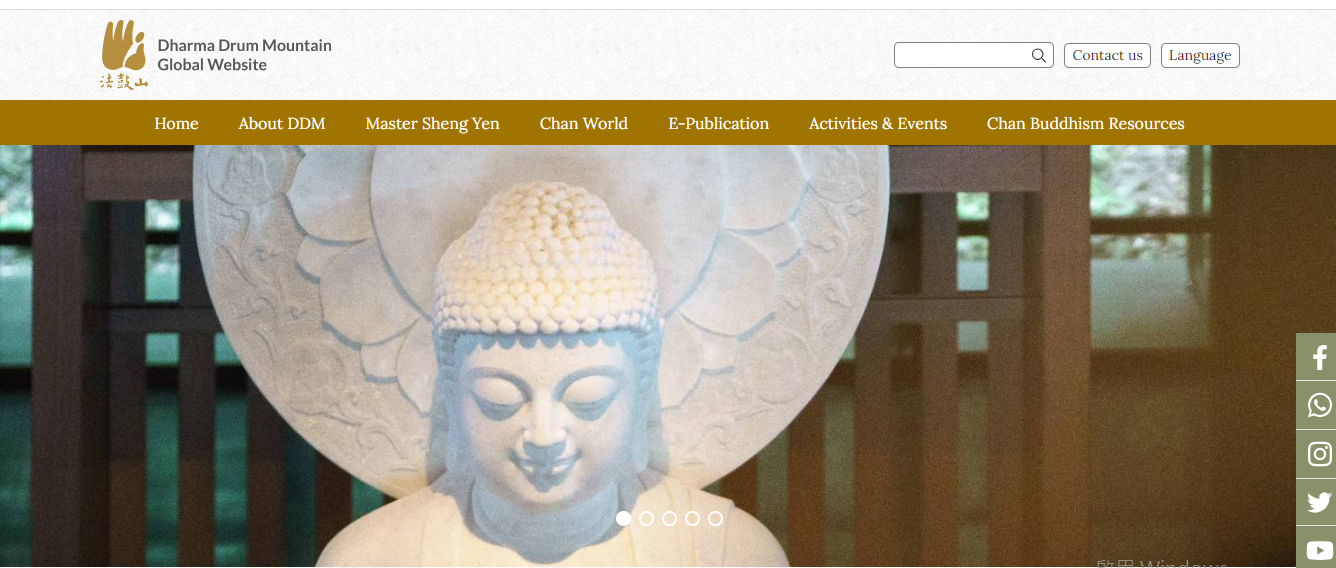
Saturday, July 11, 2020
In response to the development of various Internet carriers and the needs of readers with diverse reading habits, the renewed DDM Global Website will officially be launched on July 16, 2020, to continue to share with readers worldwide the stories of Dharma Drum Mountain and Buddhist wisdom in the Chan teachings.
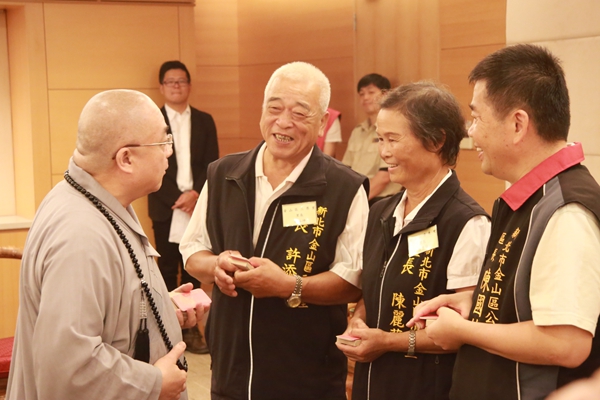
Regarding the much concerned reconstruction of Huangxi Bridge in the Jinshan District of New Taipei City, Ven. Guo Dong, abbot president of Dharma Drum Mountain, has represented its sangha and followers to present the illustration of the new bridge in plan to Eric Chu, mayor of New Taipei City, to mark its donation effort. The mayor presented the certificate of appreciation in return to the abbot president at New Taipei City Municipal Hall at 10 a.m. on June 28, and expressed thanks to DDM for their offer to help rebuild the affected communities.
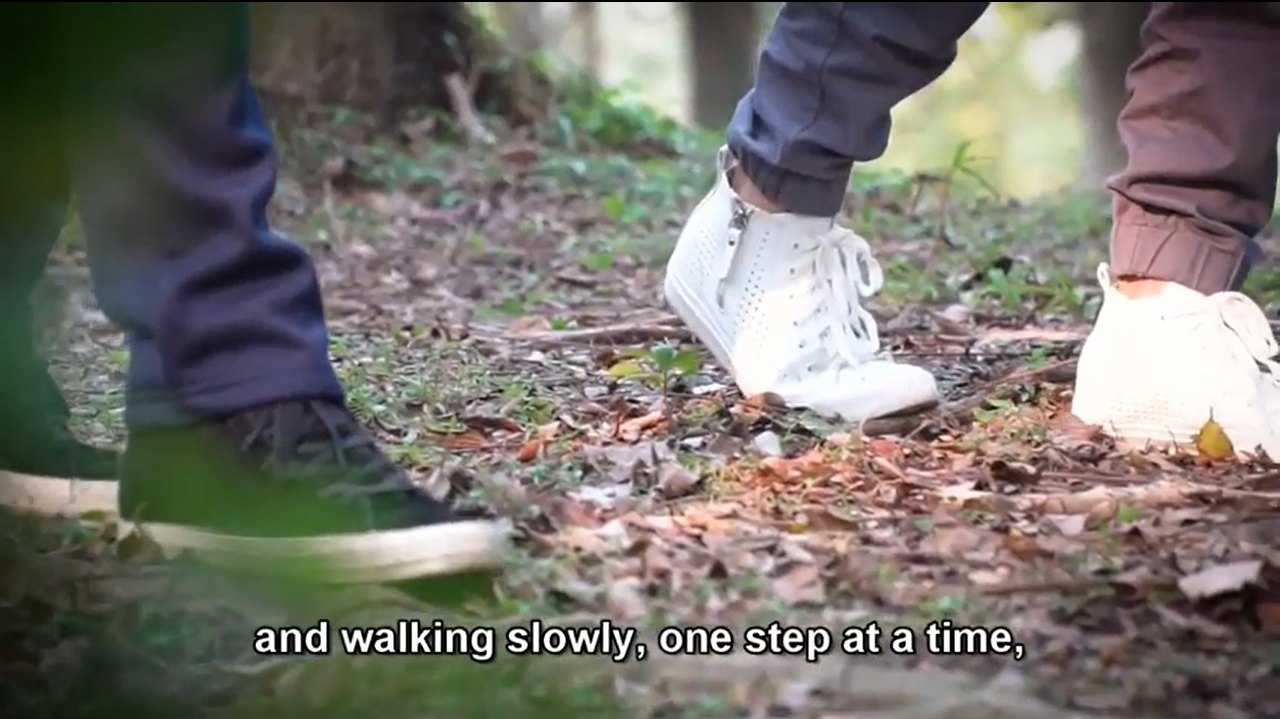
Take a moment to be aware of yourself, Are you tense? or relaxed?
There is actually a simple way to help you stop,relax and enjoy, SRE - Why don't you try to have a mindful walking?
Slow walking, being mindful of the steps
Ignoring sights in the surroundings
Unattached to external objects
Mind and mental objects both forgotten
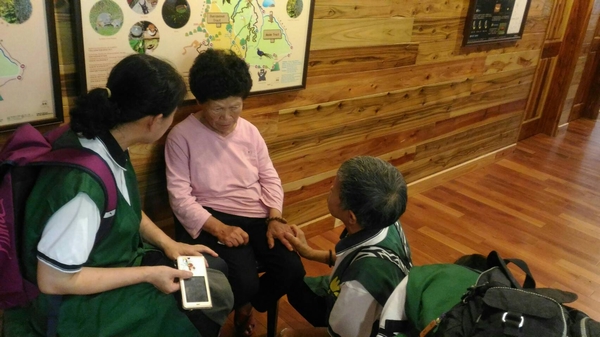
In early June, continuous torrential rain heavily hit the communities of Shenmu Village and Tongfu Village in Xinyi Town, Nantou County, causing flooding and landslides that eroded the foundations of many houses. Around 10 households are currently staying in Hoshe temporary shelter at the National Taiwan University Experimental Forest. On the morning of June 8, representatives of DDM Social Welfare & Charity Foundation and local volunteers visited the affected, in an effort to encourage them to rebuild their homes.
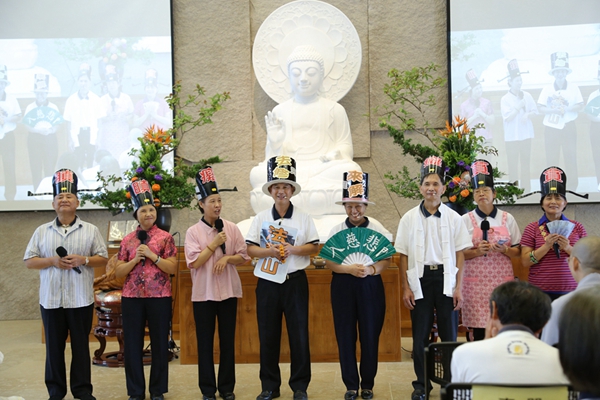
Master Sheng Yen, founder of Dharma Drum Mountain, once used the analogy that life is like a stream of dreams in the samsara to urge us to be aware of our habitual tendency to “mistakenly take afflictions in the cyclic existence of birth and death as the goal of our pursuit, and the perpetual transmigration of birth and death as our travel playground.” As he often explained, entering the gate of Buddhist practice marks the initial step to awakening the self and others
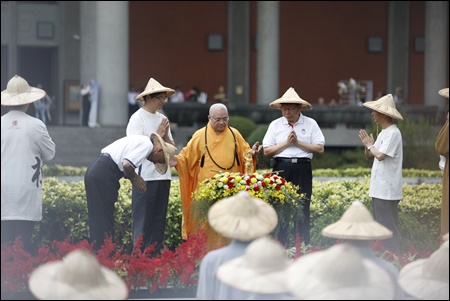
Dharma Drum Mountain declared the Mother’s Day, which is designated as the Bathing-the-Buddha Festival in Taiwan, as the Action Day to encourage the practice of protecting the spiritual environment and showing gratitude. At 8 a.m. on May 14, at the MRT Zhongxiao-Fuxing and Xiangshan stations, people and volunteers joined together and kicked off their “urban walking meditation.” Participants had a fun day experiencing moments of stillness in the “Protecting the Spiritual Environment: Stop, Relax, and Enjoy” event, by fine-tuning their inner spiritual clocks through Chan practice.
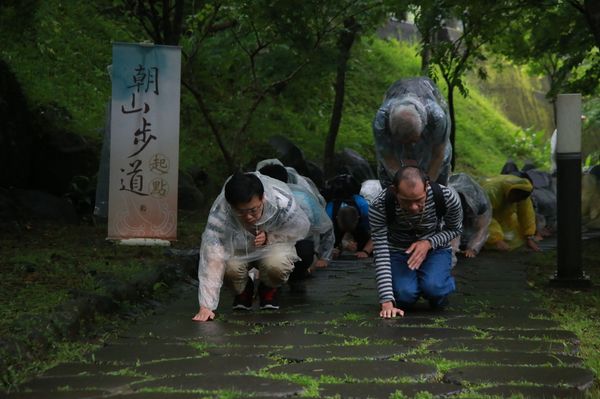
Bathing the Buddha with Fragrant Water
More than 2600 years ago, Prince Siddhartha was born in Kapilavastu, an ancient city in India. Legend held that upon his birth there were beams of bright light descending from the sky, wonderful music sounding in the clouds, flowers in full blossom, and birds singing in the forests. Afterwards, nine heavenly dragons appeared and emitted warm streams of water, and the Four Heavenly Kings (Caturmahārājakayikas) came along with fragrant water and fresh flowers, to bathe the little prince together.
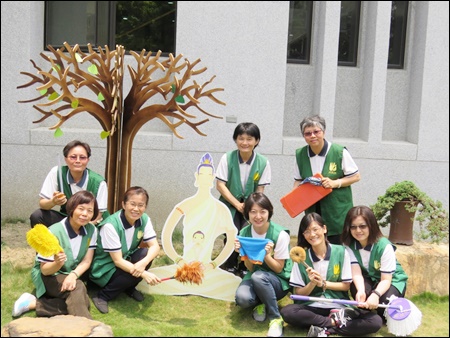
1. Attaining the insight of unconditioned Dharma
2. Developing diligence
3. Attaining great wisdom
4. Attaining rebirth as a Wheel-turning King (Skt. chakravarti-raja)
5. Enjoying wealth and prosperity on earth or heavenly realm
6. Having extensive descendants
7. Enjoying longevity without suffering diseases
8. Winning the protection and support from benevolent deities
9. Eventually attaining the supreme Buddhahood
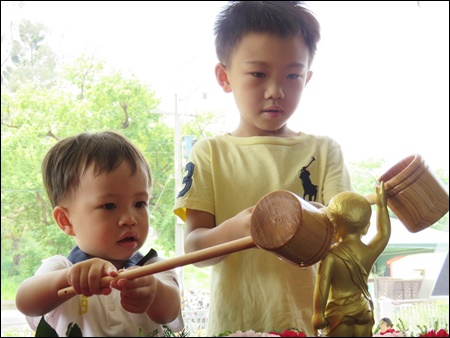
To perform the ritual, practitioners first bow to the Buddha and then scoop the scented water and pour it over the statue of infant Prince Siddhartha, and repeat the same process for two more times. Meanwhile, participants chant Shakyamuni Buddha’s name and the Bathing-the-Buddha Gatha, to wish all beings to leave behind afflictive defilements, and soon realize the pure Dharma-body of the Tathagata.
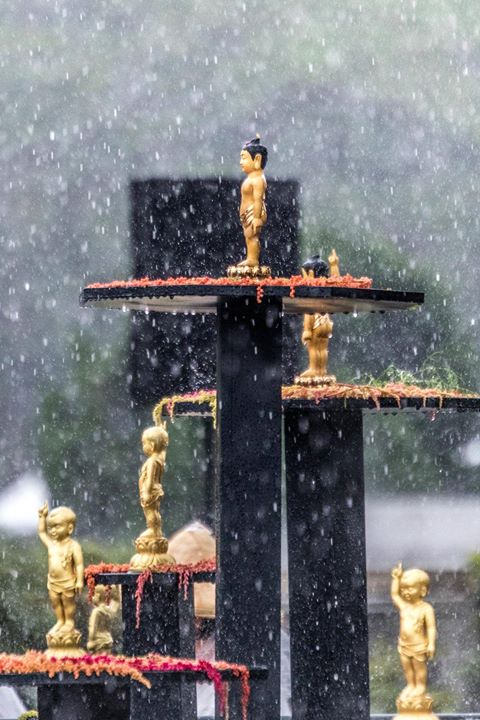
Bathing the Buddha has a profound meaning.
While pouring fragrant water over the statue of Prince Siddhartha, we must sincerely pray: “I now bathe all Tathagatas, pure wisdom as adornment and with the accumulation of merit and virtue. May sentient beings in the world of Five Turbidities leave behind defilements and soon realize the pure Dharma-body of the Tathagata.”
Through the merit of bathing the Buddha, we should aspire to purify our bodily, verbal, and mental actions by eliminating our greed, hatred, and delusion. This is the real meaning of bathing the Buddha.
The birth of Buddha into the world brought spiritual serenity and a path to liberation for confused and lost sentient beings. Therefore we hold the Bathing the Buddha Dharma Assembly to celebrate the Buddha’s birthday, showing our gratitude to his kindness.
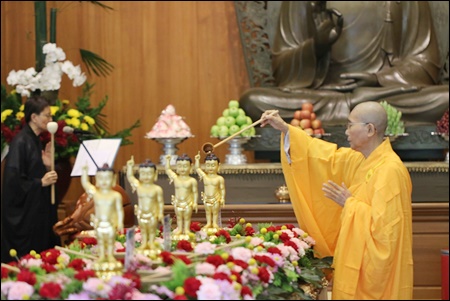
Why do Buddhists perform the ritual of bathing the Buddha on Shakyamuni Buddha’s holy birthday, and why is it called the “Bathing the Buddha Festival”?
Legend has it that over 2600 years ago Queen Maya of Kapilavastu gave birth to Prince Siddhartha, who later became Shakyamuni Buddha, under a sala tree in the Lumbini garden.
Upon his birth, there were nine dragons pouring fragrant water to bathe the infant prince’s body. Then he took seven steps, with one hand pointing towards the sky and the other towards the earth, and said, “In heavens and on the earth, only I am singularly supreme.”
This indicates that, having gone through three great incalculable eons of practice and about to attain Buddhahood in the human realm, he was the most superior among all the heavenly and human beings. Since then, Buddhists have been celebrating the Buddha’s birthday as a tradition by performing the Buddha bathing ceremony.
|